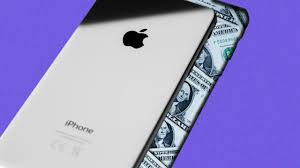emocrats are calling on the US Commerce Department to standardize charging ports on smartphones and other consumer electronics, a move inspired by similar legislation passed by the European Union.
Elizabeth Warren and a few other Democrats wrote an open letter in which they claimed to fight a conspiracy of “planned obsolescence”, such as releasing devices with new charging ports somehow obsolete devices of previous generations.
They made clearly exaggerated claims of financial burden due to the inconvenience of buying a charger and sometimes not being able to charge your smartphone (citing an EU study that claimed 38 percent reported this problem). , only 21 percent was important without mentioning it.) The letter’s only consistent goal — reducing waste — is something Apple and Samsung aren’t already shipping phones with charging bricks from. (In fact, Apple has argued that the law could generate more waste by rendering the goods obsolete.) The letter ended by urging the Commerce Department to “restore sanctity” and “certainty” for consumers.
While similar rules were being debated in Europe, Apple warned that it “inhibits rather than encourages innovation.” Cupertino’s arguments were hastily dismissed as cynical selfish corporate lobbying. However, anyone familiar with Apple’s product development history will know that escaping industry standards is key to Apple’s success, and has propelled the entire world of consumer electronics forward. “Think different” isn’t just a slogan, it’s a fundamental part of Apple’s DNA. ALSO READ: CDC: First 2 monkeypox cases in children in US, outbreak tally reaches 2,891 ‘Nadia: The Secret of Blue Water’ Blu-ray review: An anime classic that laid the foundation for ‘Evangelion’ When Apple announced the iMac in 1998, people were surprised that it didn’t have a floppy drive. Who Uses CDs?! A decade after, Apple announced the MacBook Air without CD drive, people were shocked- who doesn’t use CDs!! In 2016, Apple replaced the USB ports in its MacBook Air lineup with USB-C and received a similar response – reliance on dongles followed and many mourned the loss of Apple’s trip-resistant magnetic charging port .
Fast forward to 2022 and, ironically, the European Union has mandated USB-C charging ports by 2024, with the US potentially following suit. Meanwhile consumers are celebrating Apple re-introducing magnetic “MagSafe” charging ports. While the EU will not ban MagSafe—since MacBooks also have mandatory USB-C charging ports—consumers will likely opt for MagSafe over mandatory USB-C chargers, posing controversial implications of the law.
“Was the federal government planning to design consumer electronics in the ways it recently proposed, would Apple even exist? Will the iPhone be? or the iPod?”
Similarly, when Apple released a phone without a physical keyboard, competitors laughed. And when Apple removed the auxiliary input for headphones in the iPhone—people lost their minds.
Next, Apple’s head of marketing, Phil Schiller, was asked why the change was the reason, he replied: “The reason for moving forward: Courage. The courage to move forward and try something new that makes us all better.” His condemnation done, but he was right—that courage made Apple what it is today: the most successful company in history in terms of market cap and cultural influence
Were the federal government planning to design consumer electronics in the recently proposed ways, would Apple even exist? Will there be an iPhone? or iPod?
I questioned Tony Fadell—the man behind the iPod and iPhone—had the iPod failed had Apple been forced to use USB 1.0 instead of its proprietary FireWire cable.
His answer? The iPod must have flopped.
Why? The first iPod used Apple’s FireWire port instead of USB, as it could transfer data and charge the battery at a practical speed, all at the same time. Waiting hours to sync music with your iPod, then charging it from a wall socket is too cumbersome for most users and “just doesn’t work” as all Apple products are known to do. .
This is the kind of small regulator that cannot be predicted, and may have a hidden butterfly effect. If the iPod fails, we won’t have an iPhone or iPad. (Fadell said he didn’t specifically think the EU laws and the proposed US ones were problematic, arguing that faster wireless charging would make the laws irrelevant.)
Fadell’s talk about wireless charging calls to mind the potentially unintended consequence of mandating a charging port. While EU law specifies that devices with wired charging must use USB-C, would similar laws in the US and other countries be specific?
Are the rules intended to reduce the consumption of wires that put devices that do not use wires for charging at risk? Short-sighted lawmakers may risk outlawing a wireless future to reduce wire consumption. Will the mandatory charging port make consumers aware of wired charging instead of wireless that they know?
What about wafer-thin, flexible screens? Or wireless earbuds, so small you can’t even see them inside? A USB-C port is 2.40 millimeters thick—that means any thin or small device that isn’t wirelessly chargeable will be restricted.
Regulation is about predictability and familiarity, to bring order out of chaos. similar thinking. Innovation is about unpredictability and unfamiliarity, it’s about thinking differently. Creativity loves constraints, but she doesn’t love rules. When regulations mandate meaning, rather than end, they create a box that is prohibited by law to think about.
All MPs must accept this tension and dynamism.
More broadly speaking, the freedom to “think different” is a major reason why the permissionless nature of market-based economies spurs innovation. This is why Apple created Mac OS X and North Korea just copied it, rebranding it “Red Star OS”. This is why China relentlessly imitates Western innovations, even making it a major foreign policy strategy. This is why Russia stole its COVID-19 vaccine blueprint and released it in its own form before Western regulators approved it.










